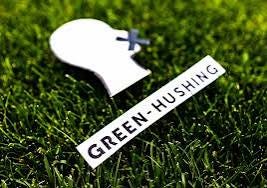Irrational Antis Oppose Tiny Peaker Plant in Lansing, Mich. ANTI-DRILLING/FOSSIL FUEL | ELECTRICAL GENERATION | INDUSTRYWIDE ISSUES
Lansing, MI Board of Water and Light is committed to the false premise that humans are catastrophically warming the planet. BWL has a clean energy plan that includes building solar, wind, and battery
Irrational Antis Oppose Tiny Peaker Plant in Lansing, Mich.
ANTI-DRILLING/FOSSIL FUEL | ELECTRICAL GENERATION | INDUSTRYWIDE ISSUES
July 30, 2024
Lansing (Michigan) Board of Water and Light (BWL) is committed to the false premise that humans are catastrophically warming the planet. BWL has a clean energy plan that includes building solar, wind
, and battery storage. However, solar and wind — even with battery storage — are intermittent and unreliable. That’s just a fact. In order to use MORE solar and wind, BWL needs to install a small (very small) natural gas-fired peaker plant that will turn on during periods of high demand, periods when solar and wind and battery backup can’t meet the demand. In other words, natgas will make using more renewable power possible. And still, antis who irrationally hate fossil fuels are protesting the peaker.
The following article (perhaps written by an intern) begins by saying Lansing residents are concerned that the peaker “could emit thousands of greenhouse gases.” Last time we checked, there were two so-called greenhouse gases: carbon dioxide and fugitive methane. Maybe you could include VOCs (volatile organic compounds), although we’ve never heard of VOCs being classified as GHGs. Two or three compounds are a few thousand less than “thousands.” Perhaps the article’s author left out a word? Thousands of…pounds? Cubic feet? We can only guess.
Here’s the article:
Lansing residents are concerned about a Lansing Board of Water and Light plant that could emit thousands of greenhouse gases.
One Lansing City Council Member and some environmentalists say the utility isn’t being entirely transparent.
BWL has been approved for an air permit for a natural gas-fired plant on the West Side of Lansing. The $160 million plant is just part of the utility company’s 10-year plan to expand solar and battery power.
“Those are known to exacerbate or cause asthma, create cardiovascular problems, create pulmonary problems. These are serious issues,” said Heather Douglas, a founding board member of Capital Area Friends of the Environment.
Local environmentalists and a council member are concerned about the utility’s pledge to be carbon neutral by 2040 and the state law requirement to have 50% renewable energy by 2030.
In a statement, Public Relations Specialist Emma McGlocklin said:
“The BWL’s clean energy plan is designed to meet future regional load growth and to meet our clean energy goals. BWL’s clean energy plan includes solar, wind and battery storage along with a new Reciprocating Internal Combustion Engines (RICE) plant, for which the state of Michigan recently approved an air permit to build. RICE engines are designed to turn on and off quickly to help support any dips in renewable energy production that occur from cloud cover or loss of wind speed. They are not designed to operate 24 hours a day, 365 days a year like a typical natural gas plant, but instead cycle on and off for short periods when necessary to ensure grid stability and support the electricity provided from intermittent resources like wind and solar. BWL has committed to producing 50 percent of energy from clean sources by 2030 and will be carbon neutral by 2040.
It’s important to note that the BWL Board of Commissioners has been informed about BWL’s clean energy proposals – including the need for additional generation to meet the future needs of our customers, for nearly three years, including on a dozen separate occasions dating back to December 2021. The All-Source RFP, which sought out proposals for all types of energy resources, was discussed in a November 2022 Commissioners meeting and the full results were presented to Commissioners in July 2023. Commissioners voted on the Clean Energy Projects Bond Resolution, which included the RICE Plant, on September 26, 2023.”
“It does not align with their strategic plan, not only this strategic plan, but the previous strategic plan when they said we’re not planning on any more natural gas or fossil fuels, that was back before 2020, and then we hear now they’ve made their plan and now they’re making this RICE plant which is in the wrong direction,” said Brian Jackson, Fourth Ward Lansing City Council member.
BWL has said that the plant would not run like a typical natural gas plant, instead, it would cycle on and off for short periods to only support their electricity grid.
“The Board of Water and Light will say the RICE plant is only for when we need to turn the switch on, it’s only for a short amount of time but when they do turn that switch on they’re going to be producing so much extra methane it’s going to be leaking out,” said Council Member Jackson.
“This needs to change for obvious reasons, addressing climate change but also to meet the new legal standards in the state of Michigan,” said Douglas.
While both say natural gas is better than burning coal, it is something they both hope the utility company will not do with taxpayers’ money. Ultimately, it’s up to BWL’s Board of Commissioners as to what happens with the plant.*
The antis have two options if they want to use more renewable energy. One is to have a peaker plant that turns on very infrequently and for short periods of time to meet demand that renewables cannot meet in the spur of the moment. The second option is to experience blackouts with no electricity.
Irrational antis will be the first to holler and scream when the lights go out and the heat stops working on cold Michigan nights. Are they really this dense? Apparently so.
*Lansing (MI) WILX-TV/Jordyn Burrell (Jul 29, 2024) – BWL natural gas plant sparking environmental concerns


